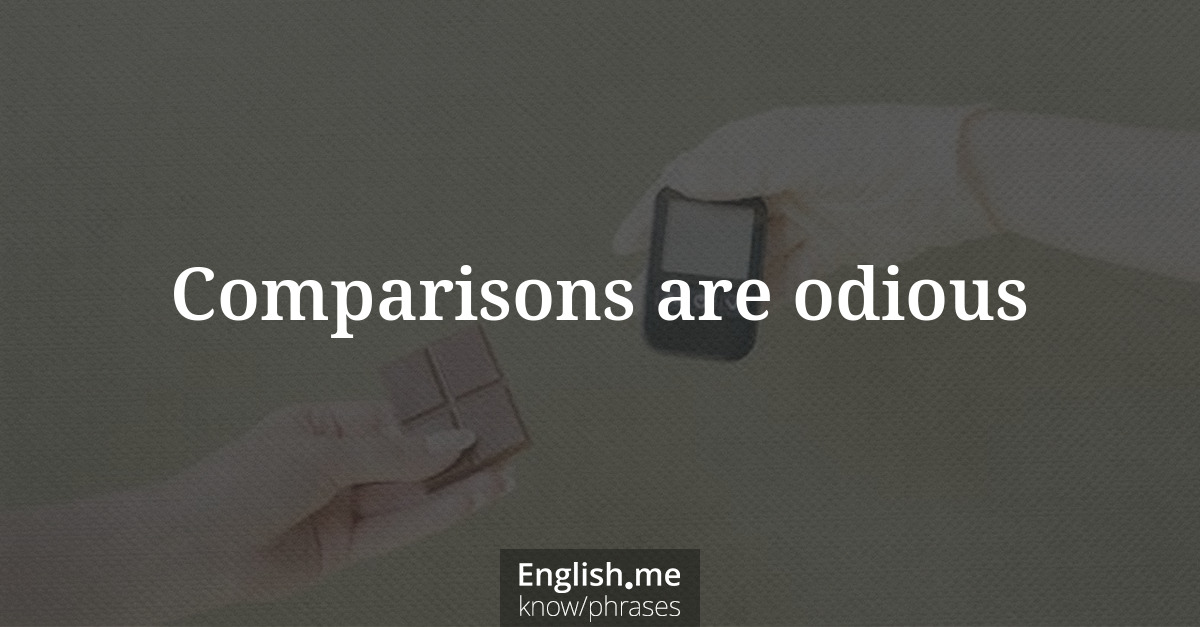Explaining "Comparisons are odious"
Reviewed and edited by  Lloyd Cooper 10/11/2024, 00:55
Lloyd Cooper 10/11/2024, 00:55
English.me team member
 What does it mean?
What does it mean?

The phrase "Comparisons are odious" means that making comparisons between people, things, or situations is often unfair or pointless, as it can lead to jealousy, resentment, or an inaccurate evaluation.
 Tone
Tone
The tone of this phrase is cautionary, highlighting the negative consequences that can arise from making comparisons. Origin
Origin
The phrase "Comparisons are odious" is believed to have originated from the 15th century. It was popularized by John Lydgate in "The Debate of the Horse, Goose, and Sheep" and later used by William Shakespeare in "Much Ado About Nothing".
 Examples of usage
Examples of usage
- She reminded them that comparisons are odious when they started debating who was the better singer.
- Whenever he compared his achievements to others", he had to remind himself that comparisons are odious.

 English
English español
español française
française italiano
italiano deutsche
deutsche 日本語
日本語 polski
polski česky
česky svenska
svenska Türkçe
Türkçe Nederlands
Nederlands